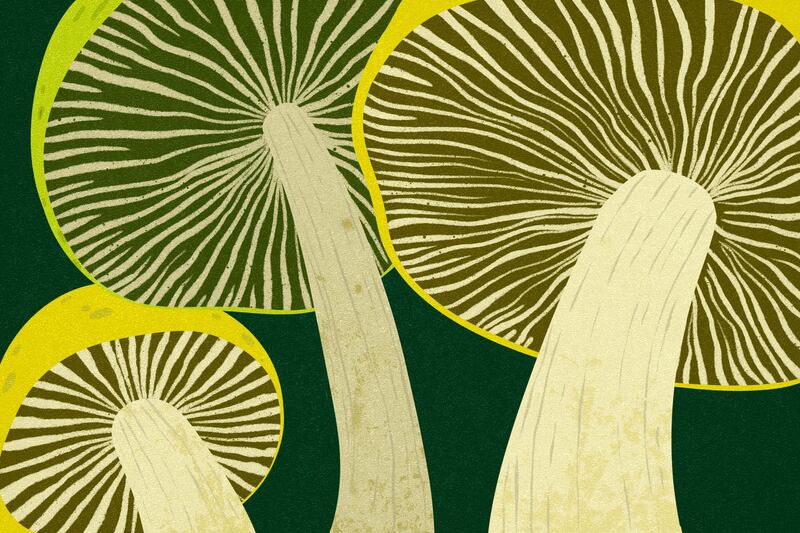The revelation last year that ketamine played a role in the death of actor Matthew Perry was sobering for the psychiatric community.
Though ketamine has not been approved by the Food and Drug Administration for mental illness, a growing number of physicians use it as a treatment for patients with depression, anxiety and other psychiatric disorders. However, there has been continual controversy over the best ways to provide safe and effective care.
News media reported that Perry had been using ketamine for the treatment of depression, but his last known clinic visit was about a week and a half before he died. Given how short-lived ketamine is, it’s impossible that his most recent ketamine clinic visit was the source of the large quantities of the drug found in his autopsy.
As our research has shown, several providers have routinely used doses much higher than those tested in clinical trials (which the FDA would not allow in research), with some clinics giving patients ketamine to take at home — a practice many have warned against. As a result, ketamine clinics have become a sort of Wild West of American medicine.
The FDA approved a derivative of ketamine known as esketamine (brand name: Spravato) for depression in 2019. Spravato is subject to a strict drug safety program imposed by the FDA, which mandates that the drug be used at a doctor’s office. At-home Spravato use is explicitly forbidden.
Because of a unique confluence of factors, ketamine has no such drug safety program that doctors must follow. Hence, doctors who prescribe ketamine in ways that are not evidence-based (such as allowing patients to self-administer at home) are technically not breaking any laws. To add to the confusion, there is a plethora of opinions and little data in the medical community as to whether there is a meaningful difference between ketamine and Spravato. One provider website claims that ketamine has more research supporting its use, a claim that is demonstrably false.
Yet ketamine and Spravato are just the first trend-setting treatments amid surging interest in powerful psychotropic drugs that show substantial therapeutic promise. Psilocybin, another psychedelic drug found in certain mushrooms, has shown great promise as an antidepressant and is now starting Phase 3 clinical trials. MDMA (known on the street as ecstasy) has shown promise as a therapy for post-traumatic stress disorder. Like ketamine, however, these drugs carry substantial risks.
As just one example, in the fall of 2023, off-duty pilot Joseph Emerson tried to shut off the engines on an Alaska Airlines flight en route to San Francisco. Emerson later claimed he was not himself because he had ingested psychedelic mushrooms two days prior in an effort to self-medicate for depression. Despite some claims to the contrary, Emerson’s claim is not far-fetched; in a recent trial of psilocybin for depression, 6% of those receiving the active drug reported visual disturbances that lasted beyond 24 hours.
Alarmingly, several local governments have moved to liberalize laws regarding psychedelic substances. In 2020, Oregon became the first state to legalize recreational psilocybin use. (Ironically, Emerson’s plane made an emergency landing in Portland, and as such, the pilot is now facing felony charges in Oregon state court.) Washington, D.C., has decriminalized the use of “magic” mushrooms and similar psychedelic substances. And later this year, Colorado will begin licensing “healing centers” where individuals can consume psilocybin. While these policies may be well intentioned, state and local governments have no experience regulating the marketing and use of these types of drugs.
Ketamine, Spravato, MDMA, psilocybin and other powerful drugs provide hope for the terrible scourge of mental illness that afflicts millions of Americans. Yet the potential benefits of these drugs must be weighed against their real risks, especially when used outside of close medical supervision.
State legislatures that legalize these powerful and dangerous substances outside traditional avenues of implementing new medical therapies will create haphazardly regulated markets that will lead to real public harm (to say nothing of issues of accessibility; many of these treatments will only be available to the wealthy). The prevailing ethic as we wade into this exciting but precarious era of psychedelic medicine should be to first do no harm.
Wilkinson is an associate professor of psychiatry at the Yale School of Medicine and the author of the new book “Purpose: What Evolution and Human Nature Imply About the Meaning of Our Existence.” Rhee is an associate professor of medicine at the University of Connecticut and an adjunct associate professor at Yale.

